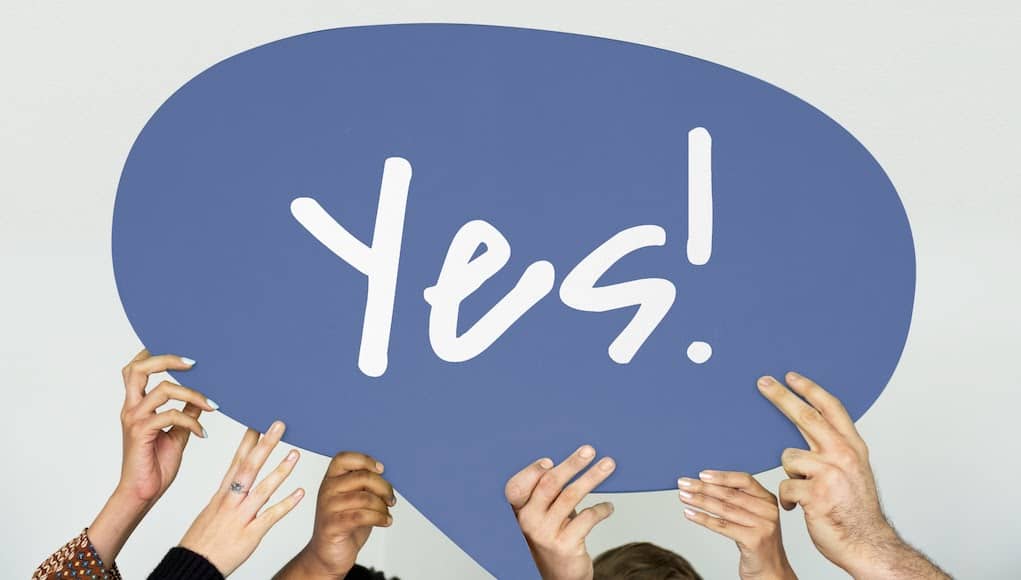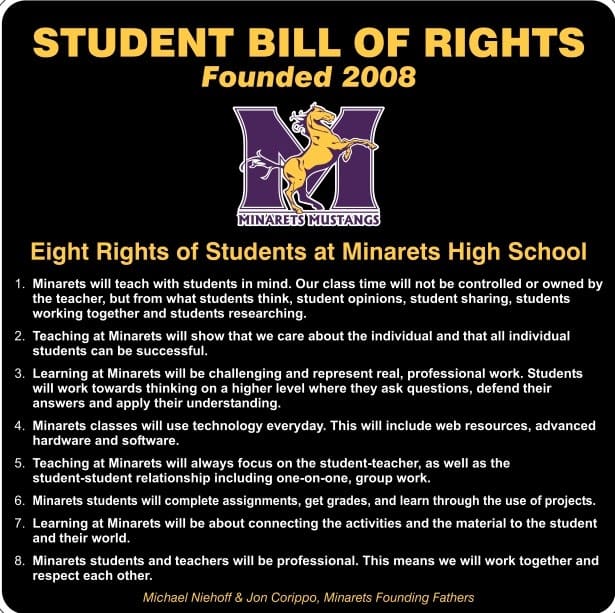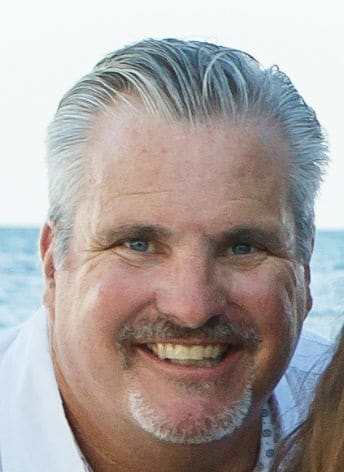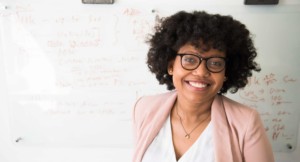Education Needs A Lot More ‘YES’

Several years ago, actor Jim Carey starred in a movie entitled “Yes Man.” The basic premise was that a person’s life would vastly improve if one just learned to say ‘yes’ to things. In other words, our first instinct is often ‘no.’
If education is about creating, utilizing and benefitting from opportunities, then consider how often we say ‘yes.’ Or rather, consider how often we say and hear the word ‘no.’ Saying the word ‘yes’ is often harder than it seems and quite often the opposite of what we naturally do. Yes, we say ‘no’ more often and much easier.
Indeed, a survey conducted several years ago at UCLA reported that the average one-year-old child hears the word ‘no’ more than 400 times per day. Might seem crazy, but think about how often we tell a child ‘no’—sometimes repeatedly in several seconds. You could argue that more active, or even creative children might even hear the word ‘no’ far more often.
A natural part of growing up includes hearing all of the things we can’t or shouldn’t do. When we get to school and advance through educational systems, we tend to hear ‘no’ far more often than we hear ‘yes.’ Walk on to the campus of any public school in America and you are normally greeted by a sign or two that shares with you all of the things that you CANNOT do. Have you ever seen a sign welcoming students and telling them what they CAN do?
What does this mean? Well, for amazing things to happen, as well as for opportunities and dreams to be realized, someone has to say ‘yes.’ The people in charge—teachers, administrators, educational leaders—have to learn to say ‘yes.’ It’s easier to say ‘no.’ It’s automatic. We are programmed to say ‘no.’ In the world of regulations, bureaucracy, procedures, rules, doctrine, formats and systems, ‘no’ is the norm and ‘yes’ is the exception.
When I started teaching nearly 30 years ago, my first principal, the late Elizabeth Terronez, said something that resonates now more than ever. She told me, the youngest teacher on the staff at the time, that her job was to find a way to say ‘yes.’ She said, I would have great ideas, creative inspirations and big dreams for students, but that others and the system would attempt to tell me ‘no.’ She told me to remind her to find a way for her to say ‘yes.’ She, in turn, taught me that this was my job as a teacher with students. My job was to find a way for me to tell students ‘yes.’
Again and again, over all of these years in schools, I have been reminded daily about our natural or inherent vocabulary of ‘no’ and our avoidance or ignorance of the word ‘yes.’ Mrs. Terronez had a subtle brilliance to know that my career and life, as well as the careers and lives of my students, would be fraught daily with the word ‘no’ and devoid of the word ‘yes.’ She knew that our natural vocabulary—especially in education—was based on the word ‘no’ and almost ignorant of or even incapable of the word ‘yes.’
Mike Smith, a veteran motivational speaker for students and educators, as well as the founder of Difference Makers, summarized it well for me 20 years ago. He often asks teachers, educators, school leaders and students, “If it’s not illegal or immoral, why not give it a try?” This made an impression on me. It made me check how often I said ‘no’ to the ideas of others or dismissed something as not possible vs. saying, “Yes…let’s do it.” Doesn’t that make sense? If it’s not illegal or immoral, why not try it? In other words, if someone is not going to get hurt or no damage will be done, why do we, or would we, say ‘no’ instead of ‘yes?’
Education leader Jon Corippo, the creator of EduProtocols and Chief Learning Officer at CUE, also brought this idea to life once again when we co-founded a new high school—Minarets HS. When the Jim Carey movie “Yes Man” came out, we kicked off a school year with a challenge for all 500 students. Jon and I promised them they could come up with the craziest or most creative ideas, as long as it was legal and moral, and we’d be committed to trying it. It became a school-wide mantra and theme for the year. He reminded students throughout the year that great experiences and success would only come from saying ‘yes.’ He showed students that we all say ‘no’ naturally and have to train ourselves to say ‘yes.’ Opportunities, and potentially incredible experiences, will present themselves, but we have to be prepared to say ‘yes.’ We have to fight our natural and dominant urge to say ‘no.’
It was a theme that connected to the foundational core of our school’s philosophy of putting students and their voices first. Indeed, when we created the school, we instituted a Student Bill of Rights and a Student Success Ladder as a way of announcing, publishing and committing to our students. It was our initial and profound way of saying ‘yes’ to them from day one.

Is this relevant to education more than ever? I would say ‘YES.’ If we want to help foster creativity in students, we have to learn to say ‘yes’ to their ideas and imagination. If we want to create more entrepreneurs, we will need to utter ‘yes’ far more often than ‘no’ to proposals, projects and products. If we want people to be engaged, passionate, participatory and connected, then ‘yes’ will have to be our mantra vs. the standard educational response of no. If we want to teach students how to use technology professionally, and hopefully to improve the world, then we will have to trust them. Trust will imply ‘yes’—while distrust will be connected to ‘no.’ (Insert your standard cell phone ban or policy here)
As we leave the world of teaching standards to teaching skills, this will require teachers and educators to create environments where students hear the word ‘yes’ frequently. The new world of work in the 21st century is dependent on ideas, creativity and critical thinking. And these are only imagined once we, and our students, believe. Belief will come from ‘YES.’ Our system, culture and evolutionized response systems will want to say ‘no.’ We will have to fight against those innate, conditioned and traditional responses in order to create a new paradigm of ‘YES.’
YES MAN—JUST SAY YES!!!
For more, see:
- Centering Dialogue in the Classroom: It’s About WE, Not ME
- Transforming The Way Students See Themselves
- Does Education Really Want Student Voice? Spoiler Alert: The Answer Is No
Stay in-the-know with innovations in learning by signing up for the weekly Smart Update.








0 Comments
Leave a Comment
Your email address will not be published. All fields are required.